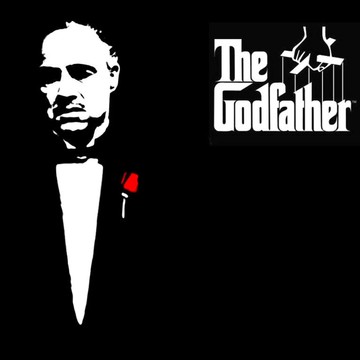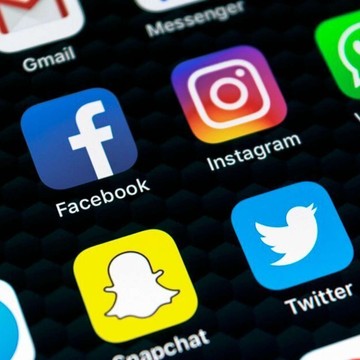

Hotel Bar Sessions
Leigh M. Johnson, Jennifer Kling, Bob Vallier
A podcast where the real philosophy happens.
Episodes
Mentioned books

Mar 18, 2022 • 1h 3min
Style
The HBS hosts talk about style. Style can simply mean a way of doing something, like dressing, decorating, writing, singing, painting. Often, it seems as if style is an “add on,” something not essential, and often seems closely akin to fakery (we can say someone is “all style, no substance”). But is there something more significant about style? Full episode notes at this link:http://hotelbarpodcast.com/podcast/episode-47-styleSupport HOTEL BAR SESSIONS podcast at Patreon. As we often say, we do this for free but it does have costs!
★ Support this podcast on Patreon ★

Mar 10, 2022 • 1h 6min
Bars
The HBS hosts go where people know troubles are all the same.In this episode, the HBS hosts discuss Bars—as a social, cultural and communal space, bars as a space removed from the regular function of society, yet at the center of essential social discussions. Why are we “Hotel bar sessions?” Let’s talk about the role the bar plays at conferences and why we say “this is where the real philosophy happens?” What does that say about the bar.Full episode notes at this link:http://hotelbarpodcast.com/podcast/episode-46-barsPlease consider supporting our costs at Patreon. As we often say, we do this for free but it does have costs. It would help us out tremendously if you could help us with those costs.
★ Support this podcast on Patreon ★

Feb 11, 2022 • 1h 6min
Turning Up the Heat
The HBS hosts take turns in the "hot seat" as they fire questions at one another.Can we be honest? Each week the HBS hosts say that one of us is in the "hot seat." But they never get "grilled." This last episode of Season 3, we grill one another through a series of questions. Some are rapid fire with the clock ticking down, some are "would you rather?" questions. And others we take some time to talk. Maybe it is a bit self-indulgent, but it surely will provide more insight into the lives and perspectives of the hosts!Full episode notes at this link:http://hotelbarpodcast.com/podcast/episode-45-turnt-up
★ Support this podcast on Patreon ★

Feb 4, 2022 • 1h 11min
The Godfather Trilogy
The HBS hosts discuss The Godfather Trilogy.The Godfather and The God Father: Part II often make it to lists of the best films. It can be argued The Godfather is America’s response to Shakespearean drama. The complexity of character, deft use of language, and the themes of the film interrogate fundamental historical, social and human concerns of American life.Full episode notes at this link: http://hotelbarpodcast.com/podcast/episode-44-the-godfather-trilogy/
★ Support this podcast on Patreon ★

Jan 28, 2022 • 1h 5min
Superstition
The HBS hosts discuss the nature, origin, and deployment of superstitions.It seems as if superstitions just evidence a misunderstanding of the relation between some cause and some effect. So, training in critical thinking *should* help to allay superstitions… and, yet, it doesn’t. How important are behaviors to superstitions? Do superstitions require a belief in the supernatural? Are there harmless superstitions?Full episode notes at this link:http://hotelbarpodcast.com/podcast/episode-43-superstition/SUPPORT Hotel Bar Sessions podcast on Patreon here:patreon.com/hotelbarsessions
★ Support this podcast on Patreon ★

Jan 21, 2022 • 56min
Optimism and Pessimism
The HBS hosts talk about optimism and pessimism in its personal, political, and philosophical senses.We tend to think of optimism and pessimism as personal, psychological characteristics. Betty White said that her secret to living to just so shy of 100 was that she never ate anything green and that she was a “cockeyed optimist.” But it seems as if there are non-personal, non-philosophical senses of optimism/ pessimism. There is clearly a political sense–can we work together to amass power to make the world, society, or a particular country better? Or is it all futile? There might also be a philosophical sense–can philosophy make individual or collective lives better or is it impotent?Full episode notes at this link:http://hotelbarpodcast.com/podcast/episode-42-optimism-and-pessimism/SUPPORT Hotel Bar Sessions podcast on Patreon here:patreon.com/hotelbarsessions
★ Support this podcast on Patreon ★

Jan 14, 2022 • 58min
Tourism
The HBS hosts discuss the ugly underside of tourism.Tourism is a superficial activity that has deep historical and political underpinnings. In A Small Place, Jamaica Kincaid argues highlights the power relation within tourism, where the tourist lives a life that allows them to visit the land of the (Fanonian) native. Tourism suggests privilege and power and a shaping of the world that makes a person a tourist. What other types of tourism are there? What are the other implications of being a tourist? What are the economic, political and even ethical ramifications of walking through the history and culture of others.Full episode notes at this link:http://hotelbarpodcast.com/podcast/episode-41-tourism/SUPPORT Hotel Bar Sessions podcast on Patreon here:patreon.com/hotelbarsessions
★ Support this podcast on Patreon ★

Jan 7, 2022 • 55min
Resolve
The HBS hosts talk about resolutions and the resolve behind them.It is close to the start of a new year and at this time resolutions are in the air. But what is it to make a resolution? And if you make a resolution, do you have to also have the resolve to carry it through? And what is resolve? In this episode, let’s talk about resolutions and resolve.Full episode notes at this link: WEBSITE: www.hotelbarpodcast.comSUPPORT US HERE: patreon.com/hotelbarsessions
★ Support this podcast on Patreon ★

Dec 31, 2021 • 1h 3min
Work
The HBS hosts sit down with Dr. Jason Read to talk about how to understand work in the 21st C.In this episode, Jason Read (Philosophy, University of Southern Maine) joins us to examine the Boots Riley‘s film Sorry To Bother You (2018) and what it might be able to tell us about the dystopic situation of the 21st C. worker. Why has it become so important that the worker demonstrate that they “love” their work? How much of our work demands “emotional labor”? Why is it necessary for (some) workers to abdicate their real or “authentic” voice in order to survive? How have we become so accustomed to accepting less and less, even as more and more is demanded of us?Are workers in the 21st C. just a pot of boiling frogs?Full episode notes at this link:http://hotelbarpodcast.com/podcast/episode-39-work/
★ Support this podcast on Patreon ★

Dec 24, 2021 • 1h 1min
Social Media
The HBS hosts talk about the good, the bad, and the ugly of social media.Social media dominate much of our current lives. Sometimes this is for the better, sometimes this is for the worse. Social media platforms allow much that is beneficial to individuals, communities, and society. Yet they also allow much that is detrimental or even damaging. What is good about social media? What is bad? And what is downright ugly? We talk about who is helped by social media and who is hurt by it. We talk about its effects on our society. And we talk about why we use or don't use social media.Full episode notes available at this link:http://hotelbarpodcast.com/podcast/episode-38-social-media
★ Support this podcast on Patreon ★


